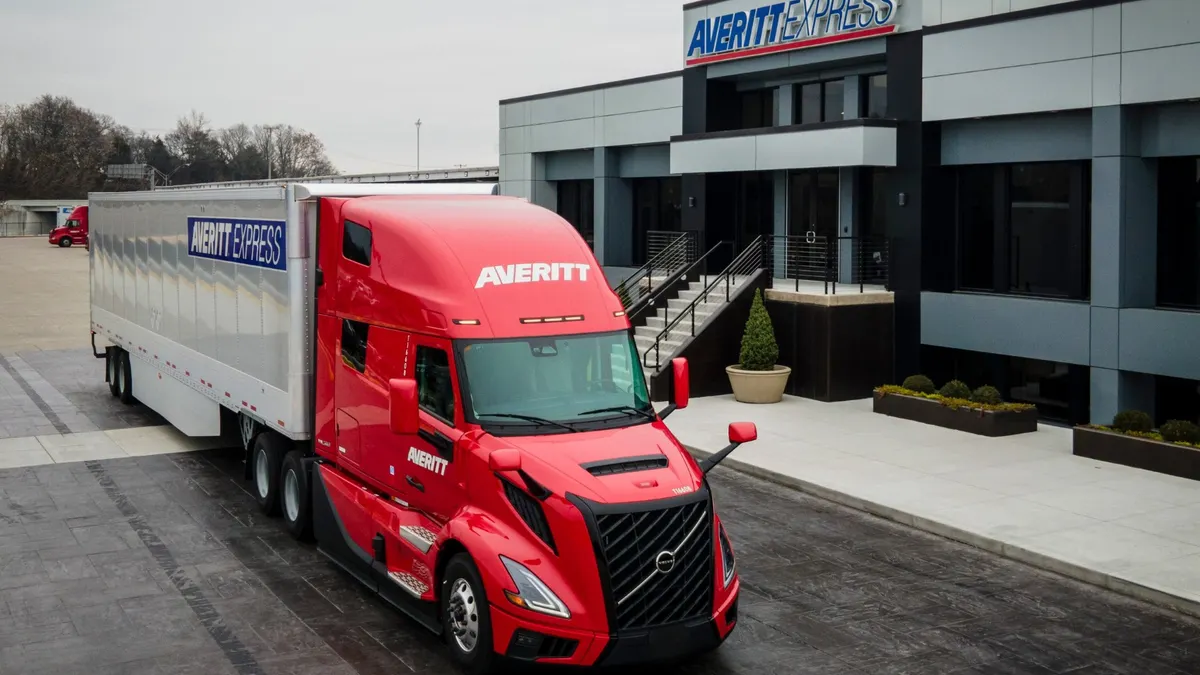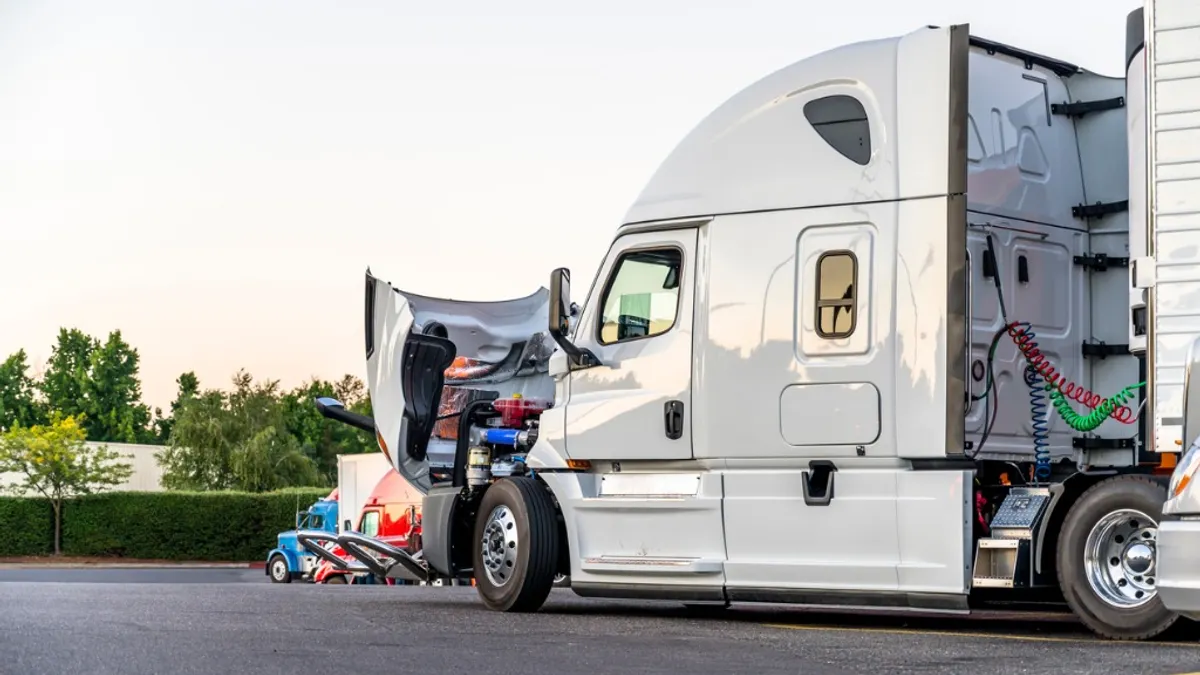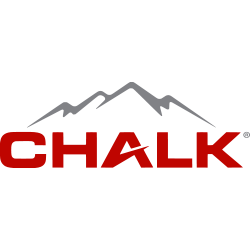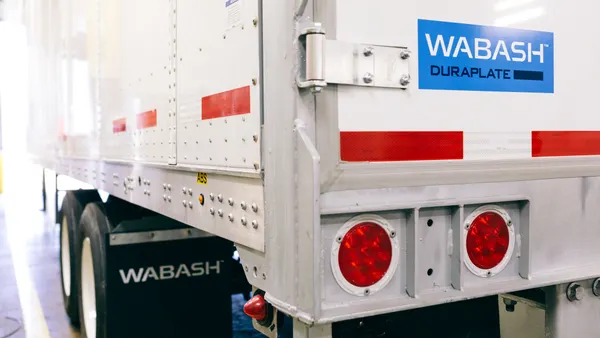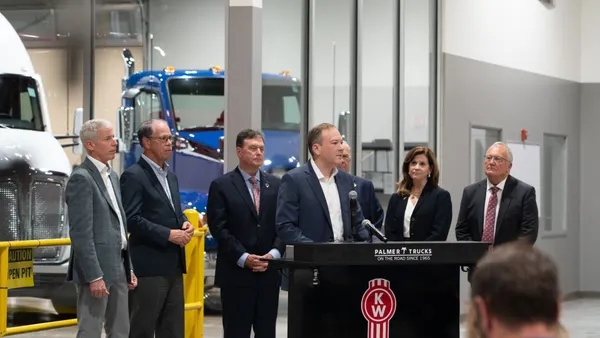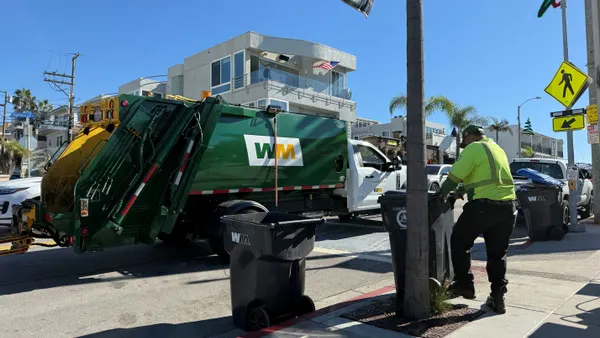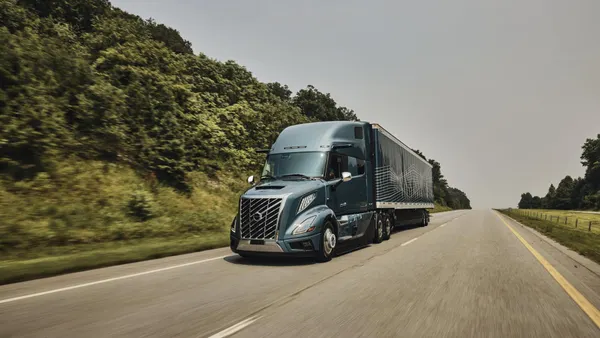Dive Brief:
- Averitt Express ordered 264 Volvo VNL 860s to add to its fleet of over 4,600 trucks, the OEM announced Aug. 21. The carrier noted in the news release the new equipment will help with fuel savings, emissions reductions and driver comfort.
- The new equipment features a 10% improvement in fuel efficiency compared to the previous model, and the trucks also have Volvo’s most-efficient idle management technology, the OEM noted.
- “The advanced safety features, the outstanding driver comfort and the fantastic fuel economy help us operate more efficiently and [sustainably] while giving drivers a more comfortable experience on the road,” Averitt President and COO Barry Blakely said in the news release.
Dive Insight:
Despite slower truck order volumes, Volvo received some bigger orders like Averitt’s — but the pipeline was unusual, according to Magnus Koeck, Volvo Trucks’ VP of strategy, marketing and brand management.
“At this time of the year, normally, the bigger fleets are looking for next year or the year beyond,” Koeck told Trucking Dive in a Sept. 4 interview.
A challenging market environment with tariffs pressuring costs and uncertainty over the U.S. Environmental Protection Agency’s 2027 emissions rules have plagued OEMs, according to analysts and the manufacturers themselves.
Averitt declined an interview on the order and why it was making the purchase now. The carrier made additional investment in its workforce recently, announcing raises in July that included a new rate of 64 cents per mile for regional drivers with a hazardous material endorsement.
North American orders were down 15% for the September 2024 to August 2025 order season compared to the same period prior, FTR noted. In explaining the slump, the firm cited how fleets remained cautious “amid trade frictions, tariff volatility, and broader economic uncertainty weighing on freight demand."
Volvo officials said uncertainties and lower demand in the North America market have contributed to declines in its trucking business. Truck deliveries declined by 10% to 52,764 in Q2 compared to a year prior, but order intake was on the same level as in the previous year, an earnings report said.
“The implementation of trade tariffs and uncertainty regarding the EPA 2027 emissions standards have caused US customers to adopt a wait and see approach,” Volvo Group said in the earnings report.
U.S. tariff policy is affecting steel and aluminum components, and a natural lag in the supply chain means costs are starting to rise now, Koeck added. Cost increases had some effect in Q2 and will gradually increase in subsequent quarters, Volvo CFO Mats Backman said on the earnings call in July.
Customers are also keeping their trucks longer, Koeck said, contributing to the difficult environment.
Customer uncertainty is also challenging OEMs, where long-term research and development loathe on-again, off-again pivots. The market could still remain lackluster, where the coming months may bring little change.
“Most interesting time of the year is really September, October, November, maybe October, November, December, because then we know pretty well what next year will bring,” Koeck said.


